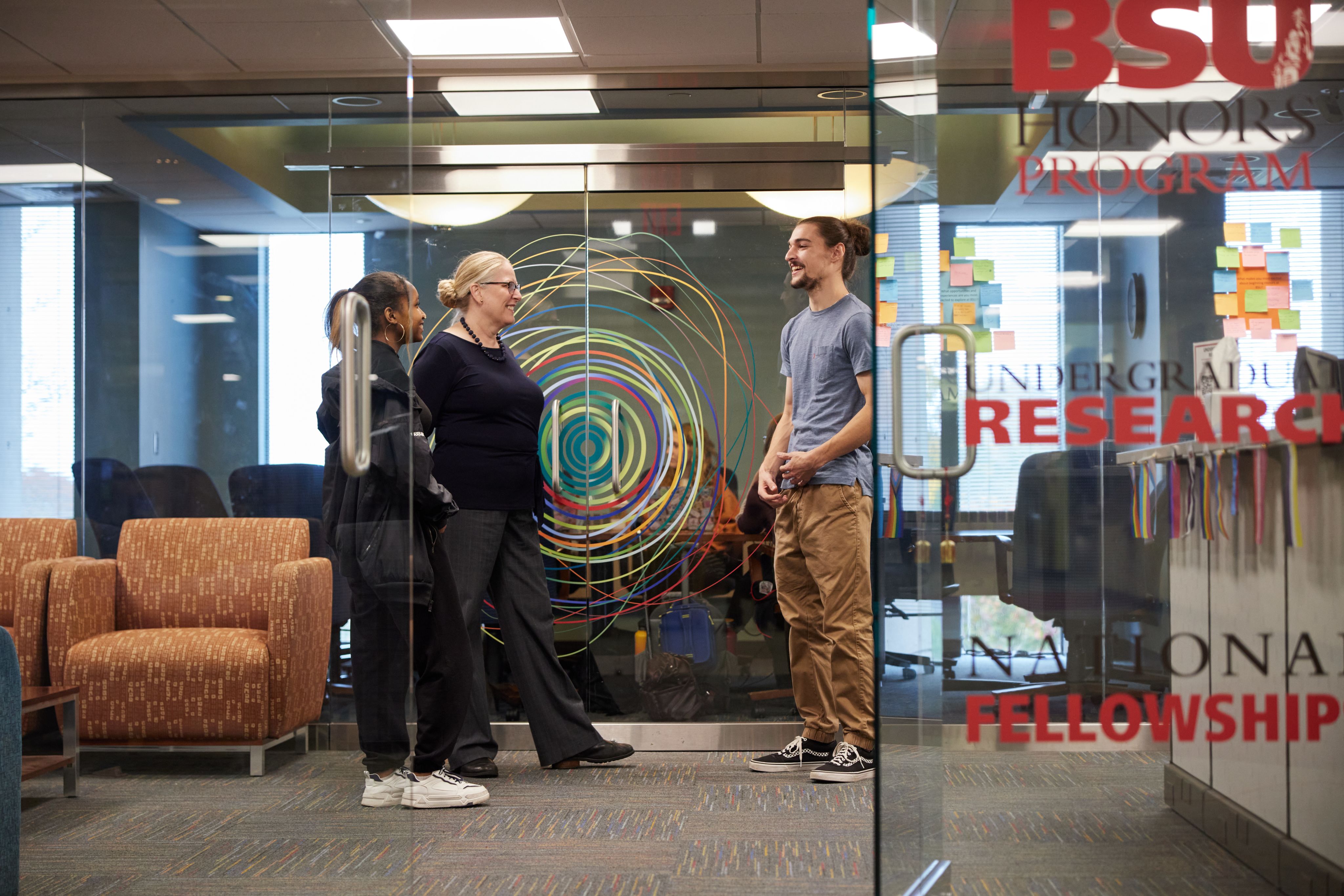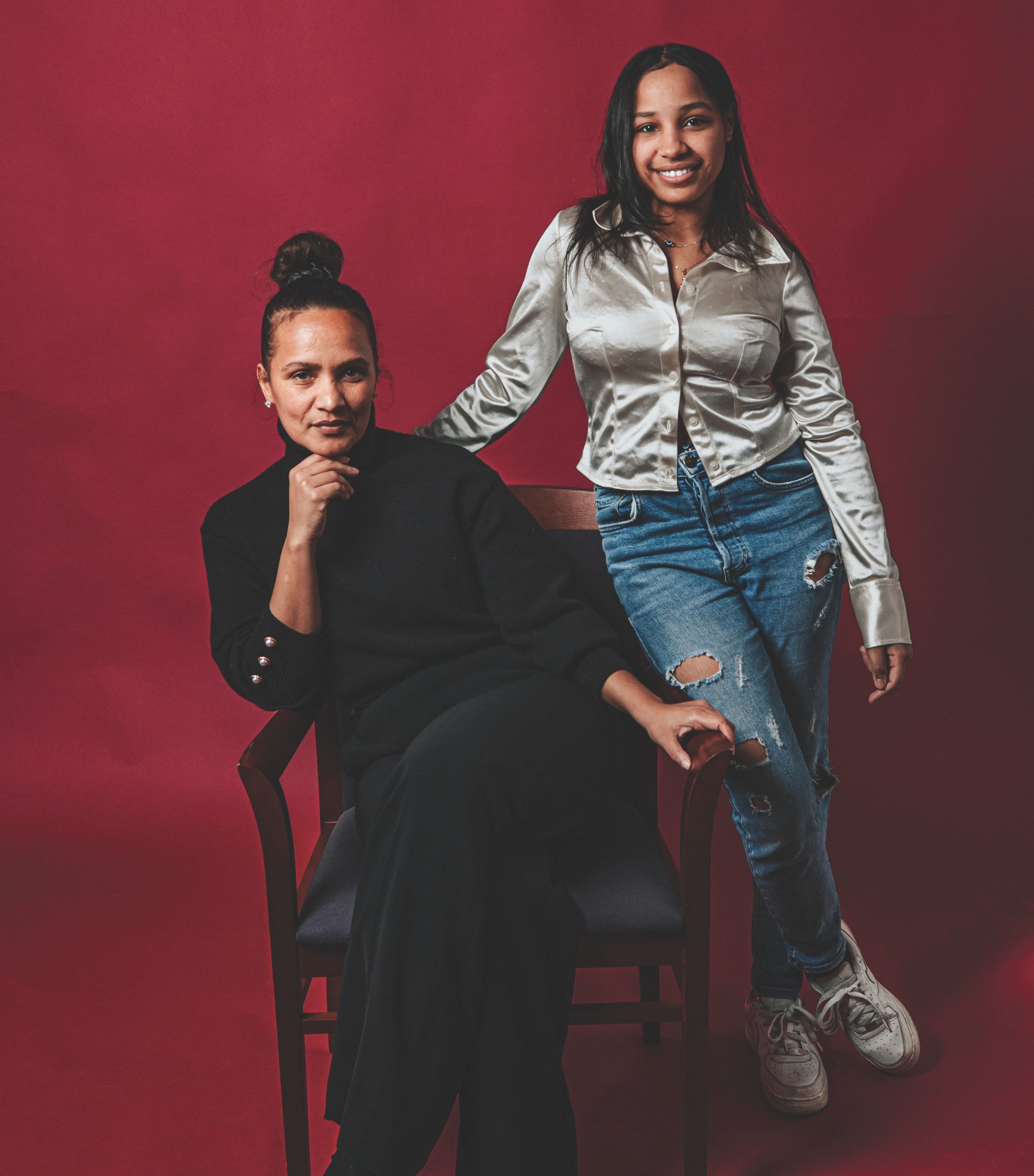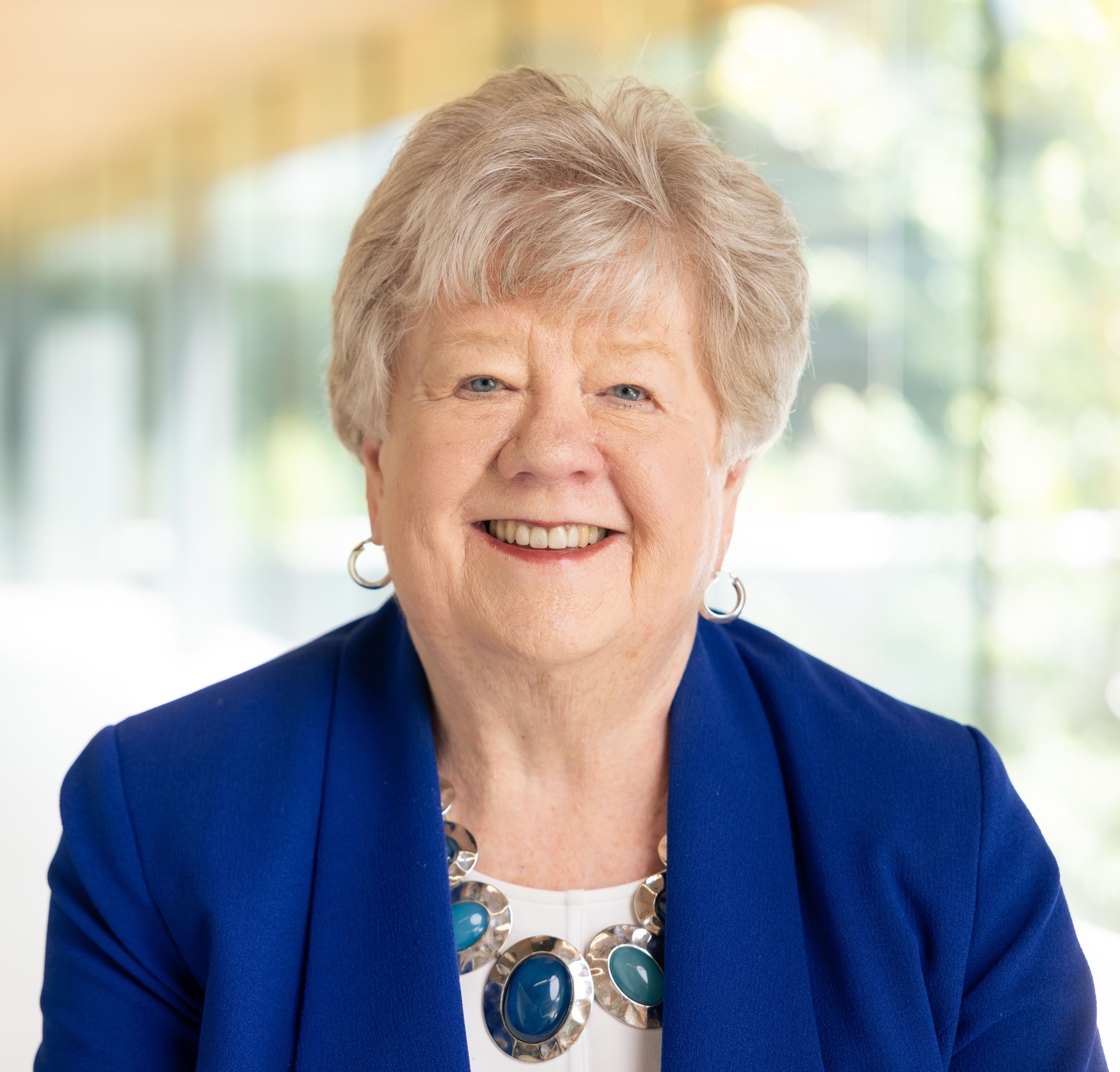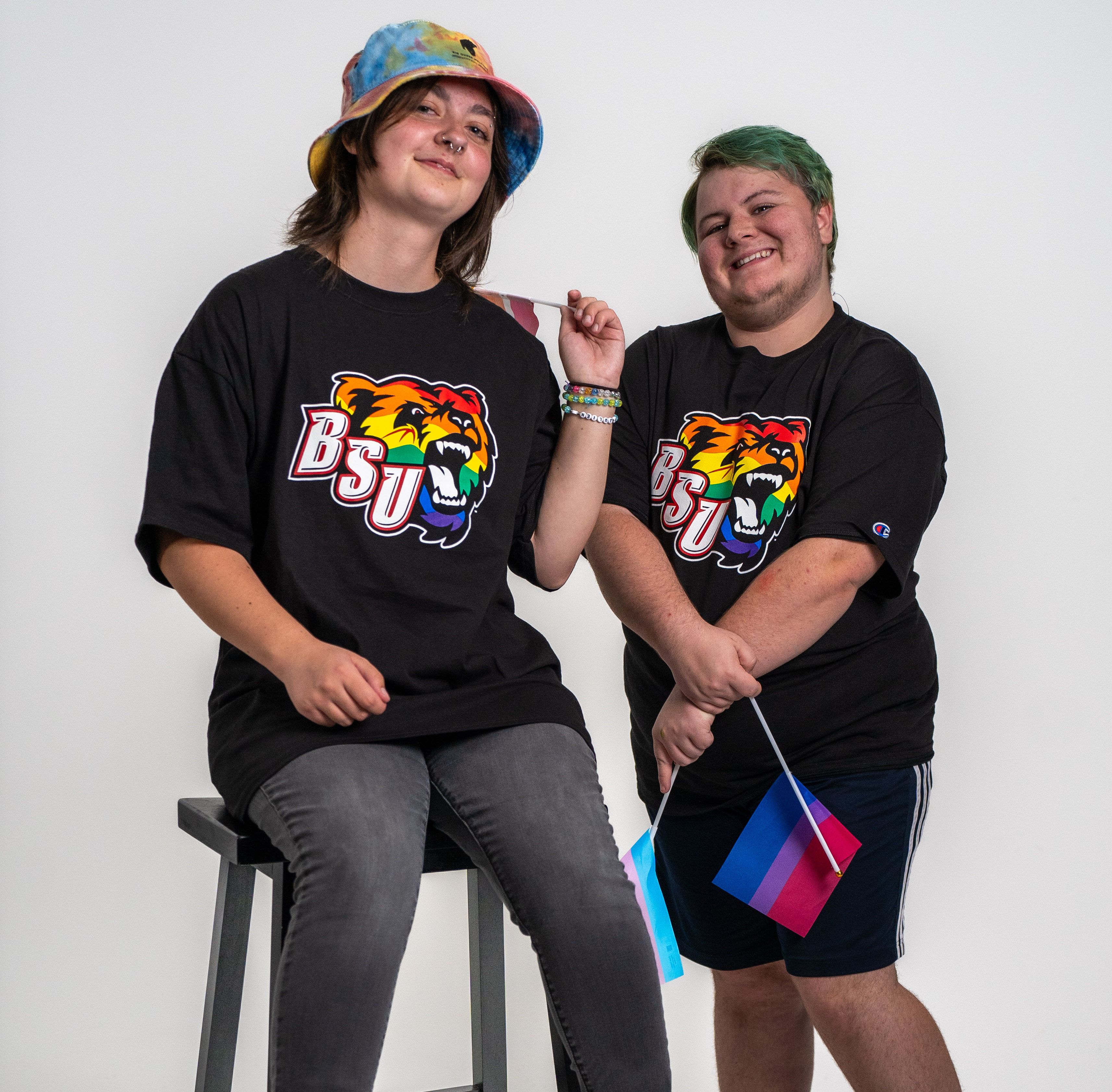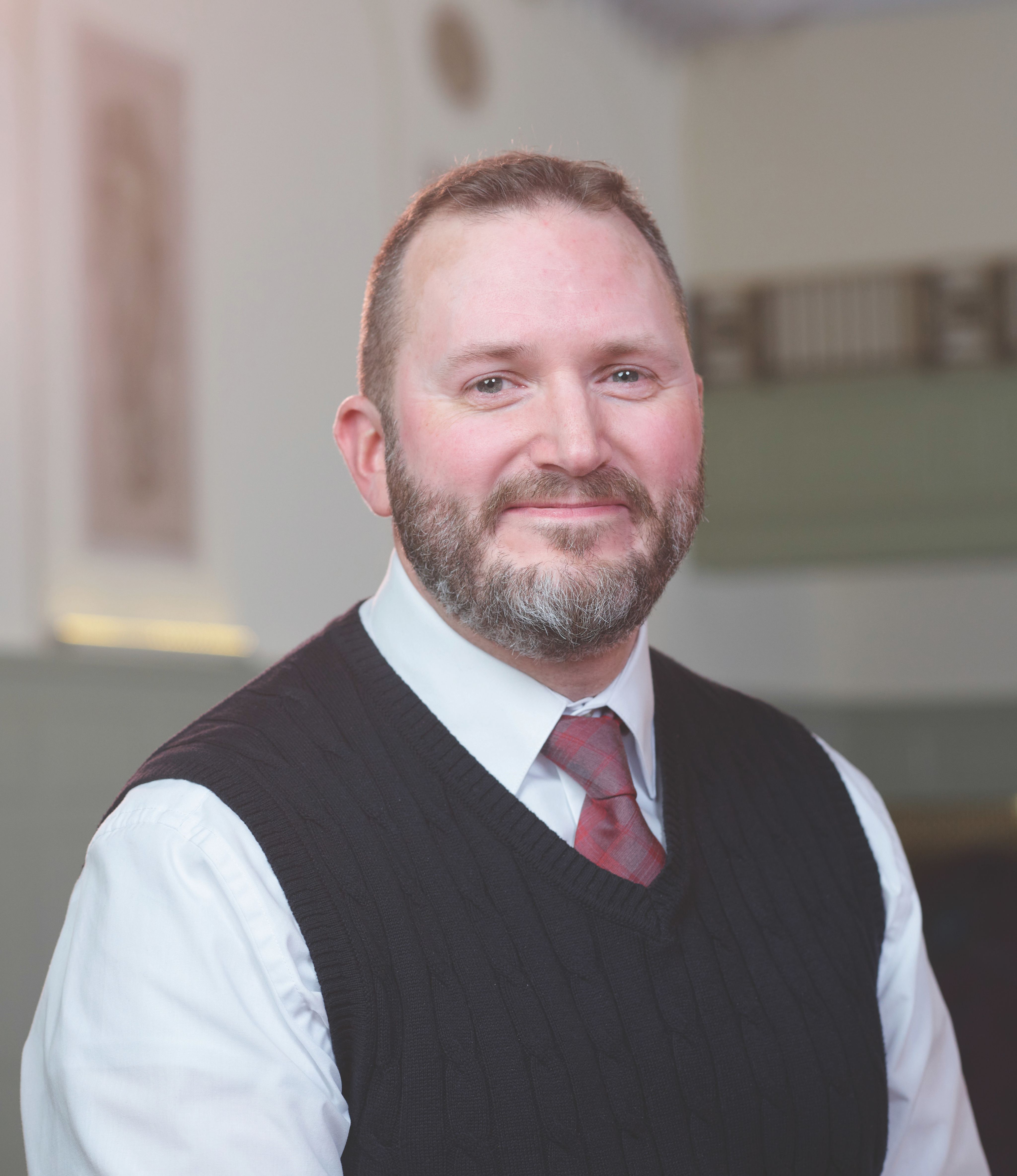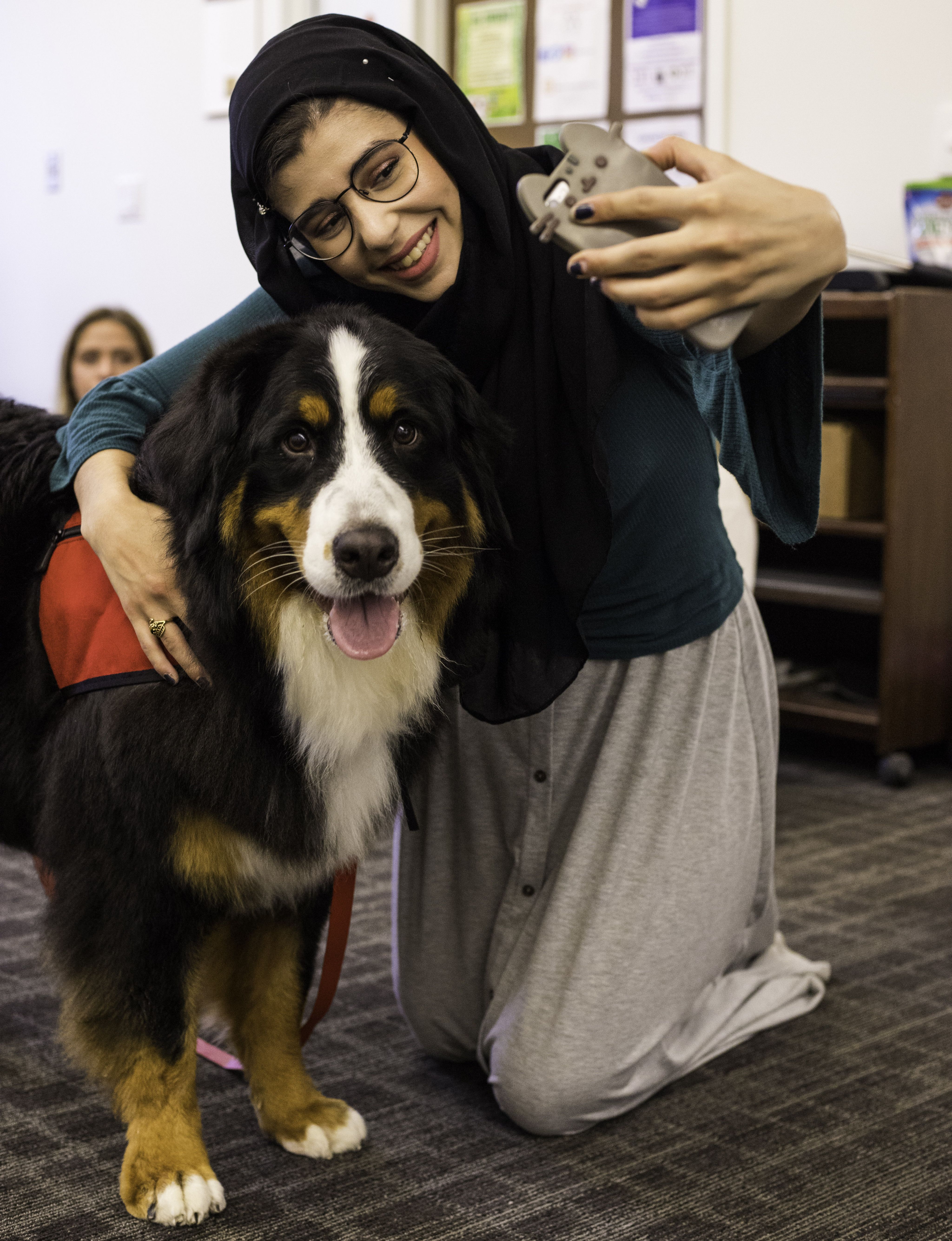PRIORITY THREE
Double down on BSU’s historic mission: Bring the dream of college success to those who once considered it impractical — or impossible.
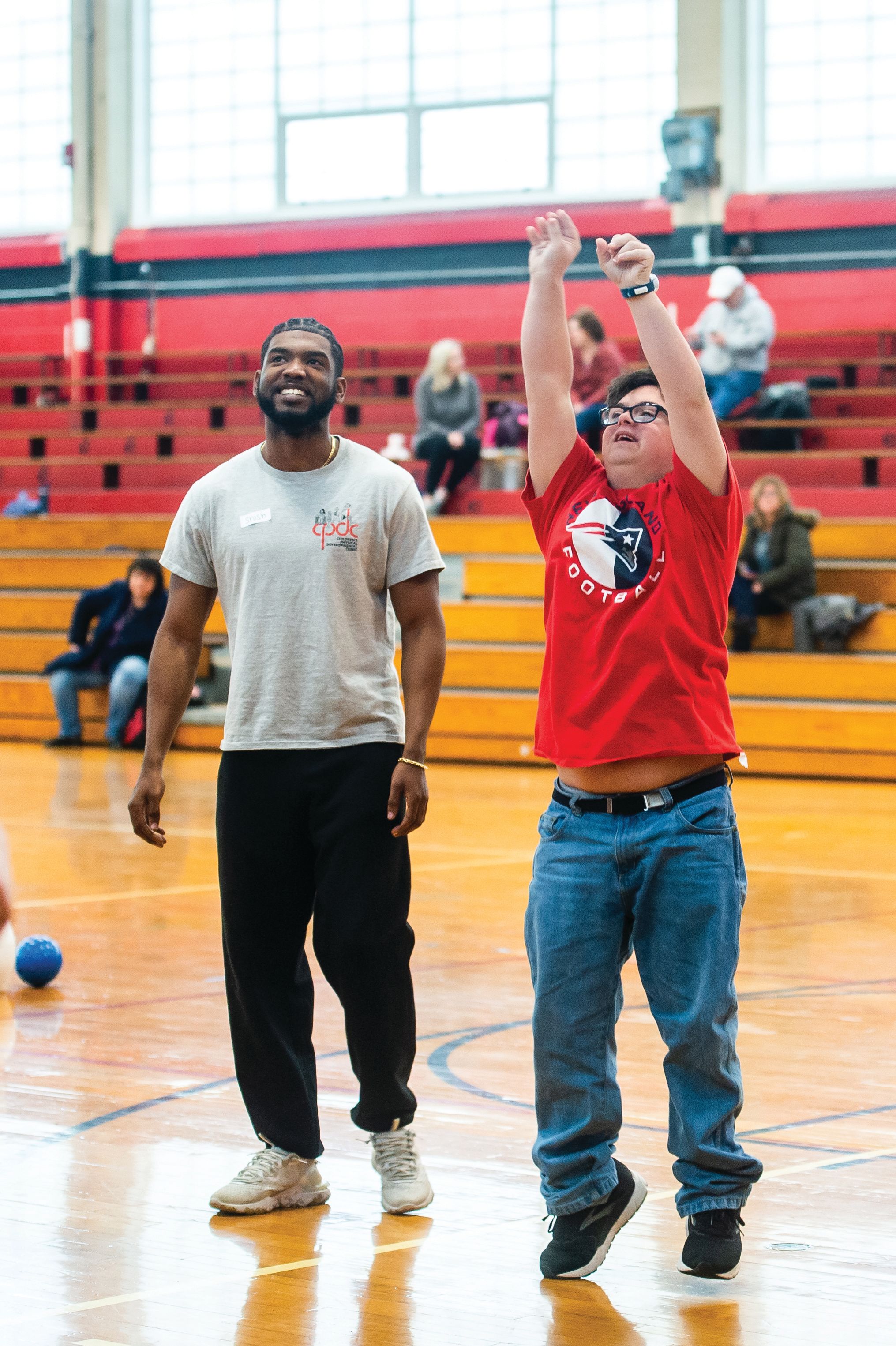
Our Innovation: To make the dream of college success available to all who seek it.
- We are creating multiple career pathways through our EXCEL program for students with learning and developmental disabilities. BSU has emerged as a state and national leader in this field and was the first program to offer a residential component. BSU is tailoring its offerings to meet the different needs and abilities of students, including a college degree path; and vocational training in advanced manufacturing.
- We are ensuring that BSU students with disabilities have the resources and accommodations they need to succeed academically and participate fully in the life of the community through the expansion of Student Accessibility Services. We are developing flexible services for nontraditional students, including working adults, seniors, and military and veteran students who may have different experiences and circumstances than students fresh out of high school.
- We have become a national leader in equitable student success through our campus-wide work that is supporting the success of students from a wide array of diverse identities. One strategy, the Student Navigator program, provides students with holistic support and care resulting in students that otherwise may not have succeeded in getting over the finish line. BSU’s leadership of the Racial Equity and Justice Institute, a consortium of 42 campuses and higher education affiliates, is equity innovation in action as we identify strategies to support every student.
- We are seeking to expand the offerings of our Wellness Center by providing more extensive support to ensure that the physical and mental wellness of our students is part of our approach to meeting their needs. We have added innovative counseling services and resources to help our diverse student population achieve academic and personal success.
ENSURING SUCCESS

FULFILLING OUR PROMISE TO STUDENTS
Student Success and Equity Interventions: For many students — especially if they are the first in their family to attend college or come from a non-traditional educational background — navigating the academic, personal, and financial challenges of college can be daunting.
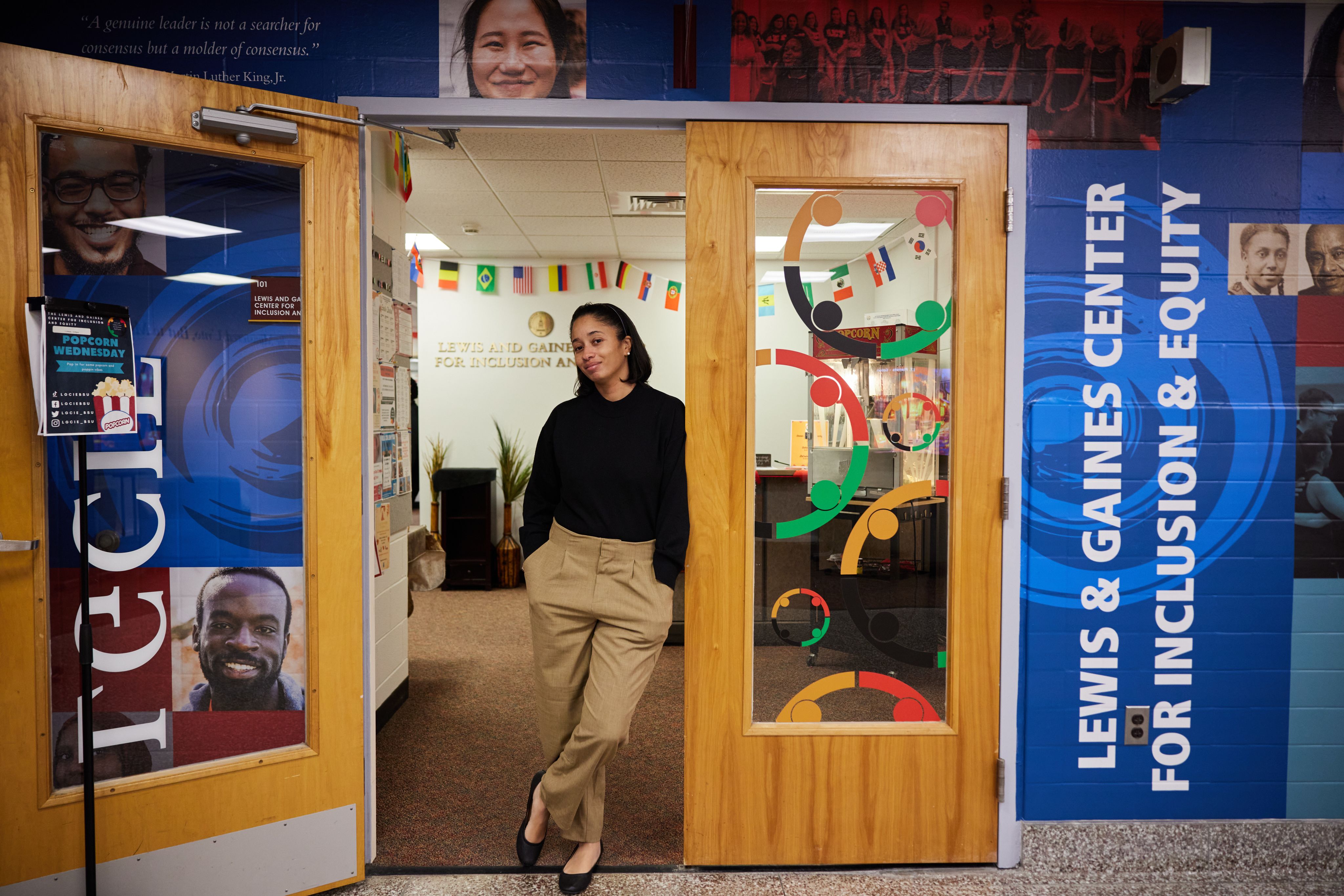
“When students encounter systemic barriers, often they’re not even sure what kind of help to ask for,” explains Cecilia DeOliveira, executive director of Student Success and Equity Interventions. “That’s where we come in. We help connect students with resources that can close the academic and equity gap.”
With only five classes left to graduate, Hanice Andrade, ’22, found herself questioning whether she could handle the stress of balancing her busy schedule. “I was really about to give up on everything” she said.
That’s when the Student Success and Equity Interventions team, which includes five professional Student Navigators, who work closely with students to ensure they have access to every potential opportunity to succeed, stepped in. As a Bridgewater alumna herself, navigator Iris Lapaix,’15, is ideally suited to identifying the tools students will need to overcome challenges they face. “The help we provide can be as simple as pointing them to the Academic Achievement Center or explaining what kinds of questions they should ask during faculty office hours,” says Iris. “Or we might help connect them to essential financial resources that will allow them to stay enrolled. The most important thing is that our work is all student driven. We listen to what they say they need, examine the situation, and help find a solution.” That extra layer of support inspired Hanice to continue with her studies and succeed to graduation.
“We talk a lot about access to higher education, but that’s only part of the story,” says Dr. Jean MacCormack, chair of Bridgewater’s Board of Trustees. “We need to take steps to ensure students are successful once they arrive here.” Importantly, Bridgewater’s approach to student success isn’t deficit based, Dr. MacCormack notes. “It’s not about ‘fixing’ students so they can thrive here. It’s about the university determining how to serve students better and ensure that we’re not placing barriers in their way.”
An abundance of data shows that students who receive support from navigators persist and graduate at a demonstrably higher rate, and these data points are being used to inform the evolution and growth of available interventions. “Our student body is changing, and with that, their needs are changing,” says Dr. MacCormack.
Navigators associated with the Pride Center, the Lewis and Gaines Center for Inclusion and Equity, and Transfer Services work with specific student populations, but there is a growing need for additional navigators in similar roles. “Contributions to the campaign could help us expand and serve even more students on a regular basis,” says Cecilia. “We exist solely to help students succeed, and the more people we can help, the better Bridgewater will be able to deliver on the promise of its mission.”
HANICE ANDRADE, '22, Anthropology with CECILIA DeOLIVEIRA, Executive Director, Student Success and Equity Interventions
HANICE ANDRADE, '22, Anthropology with CECILIA DeOLIVEIRA, Executive Director, Student Success and Equity Interventions
DR. JEAN MacCORMACK, Chair, Board of Trustees
DR. JEAN MacCORMACK, Chair, Board of Trustees
Students show off the BSU Pride Center's new "Rainbow Bristaco" T-Shirts
Students show off the BSU Pride Center's new "Rainbow Bristaco" T-Shirts
EXPANDING WELLNESS AT BSU
“ College is a unique period in young people’s lives when they’re becoming the first versions of the adults they’re going to be,” explains Dr. Chris Frazer, Assistant Vice President for Student Life.
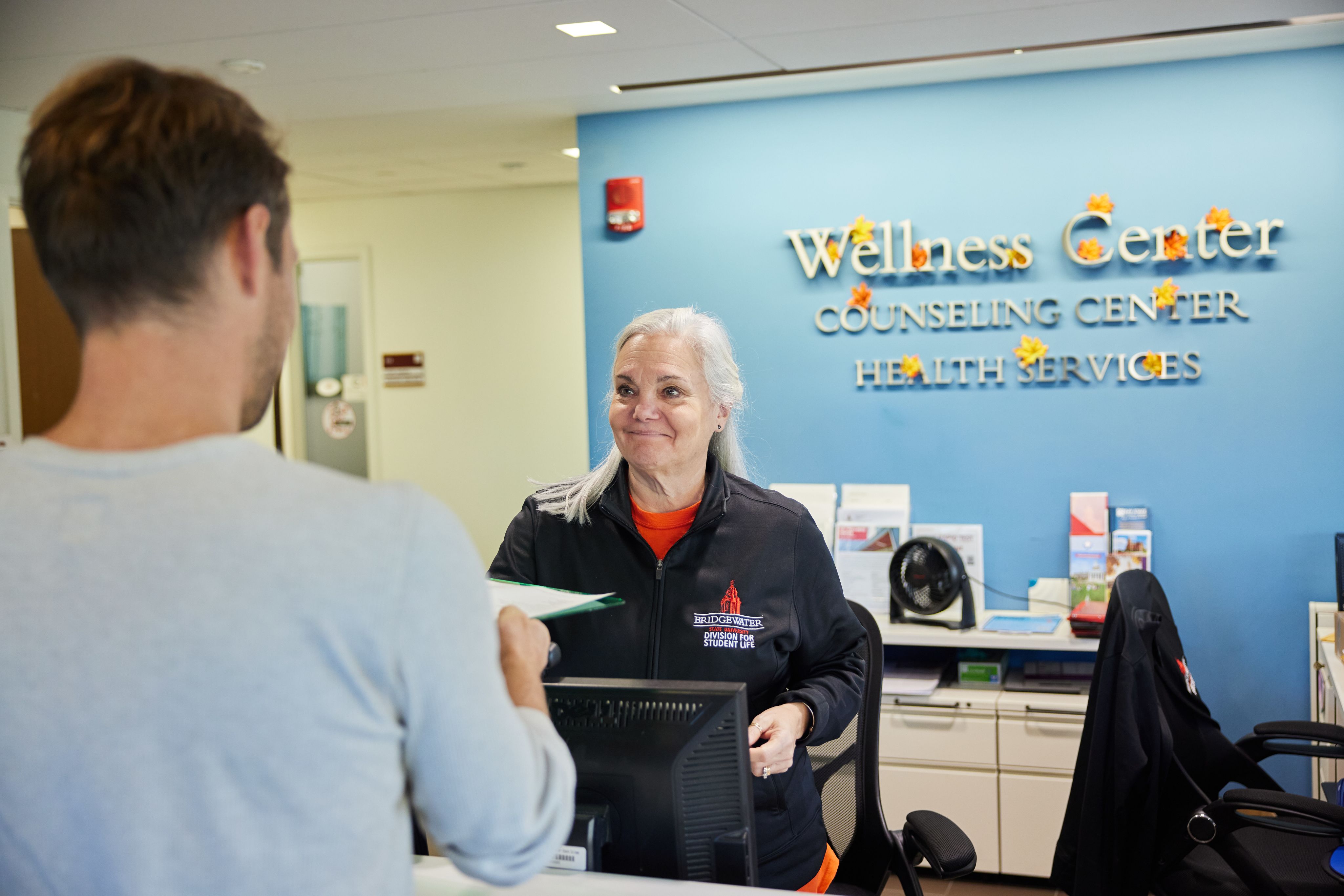
DR. CHRIS FRAZER, Assistant Vice President for Student Life
DR. CHRIS FRAZER, Assistant Vice President for Student Life
Students spend time with a therapy dog at BSU.
Students spend time with a therapy dog at BSU.
“The pandemic has disrupted so many of those milestone moments for our students and taken away a lot of their sense of agency. The toll on their well-being — and ultimately the impact on their ability to succeed academically and professionally — is impossible to overstate,” says Dr. Chris Frazer.
The Wellness Center has been expanding and deepening the services available to students to ensure a wraparound approach to health and wellness. “Student wellness is about much more than mental health,” says Dr. Frazer. “The support we provide has to take into account the multitude of factors that can impact students’ success.”
The Wellness Center’s staff fields requests from the entire Bridgewater State community and directs students to an abundance of resources based on need. These can range from individual and group counseling for mental health to assistance with food and housing insecurity. The Wellness Center works in close partnership with other offices dedicated to student success across campus, such as the Academic Achievement Center. “Marrying academic support with emotional and mental health support particularly during especially stressful times like finals period — is essential for our students,” says Lauren Folloni, executive director of the Academic Achievement Center.
BSU has received significant funding and recognition from both public and private sources to support an expanded mental health system on campus, including digital tools for students such as WellTrack, an app that allows students to monitor their stress, anxiety, and mental health, and Togetherall, a moderated online community for anonymous discussion. With additional philanthropic support, the Wellness Center can continue to expand their services to provide much-needed proactive interventions. “We need to be able to meet students where they are and deliver care in a way that doesn’t interrupt their educational process,” says Dr. Frazer. For instance, telehealth services provide more flexibility and connect students with a greater diversity of counselors whose identities better reflect their backgrounds. “But,” he says, “those systems come with significant costs.”
“Bridgewater students face different challenges from students at schools where resources may be more abundant,” Dr. Frazer continues. “We can’t assume they can find this kind of help elsewhere, which is why it’s so critical that we’re able to provide the most robust, holistic wellness services possible.”
Priority Four
Infuse BSU’s academic programs with new resources to make them more nimble, impactful, and responsive to emerging opportunities.
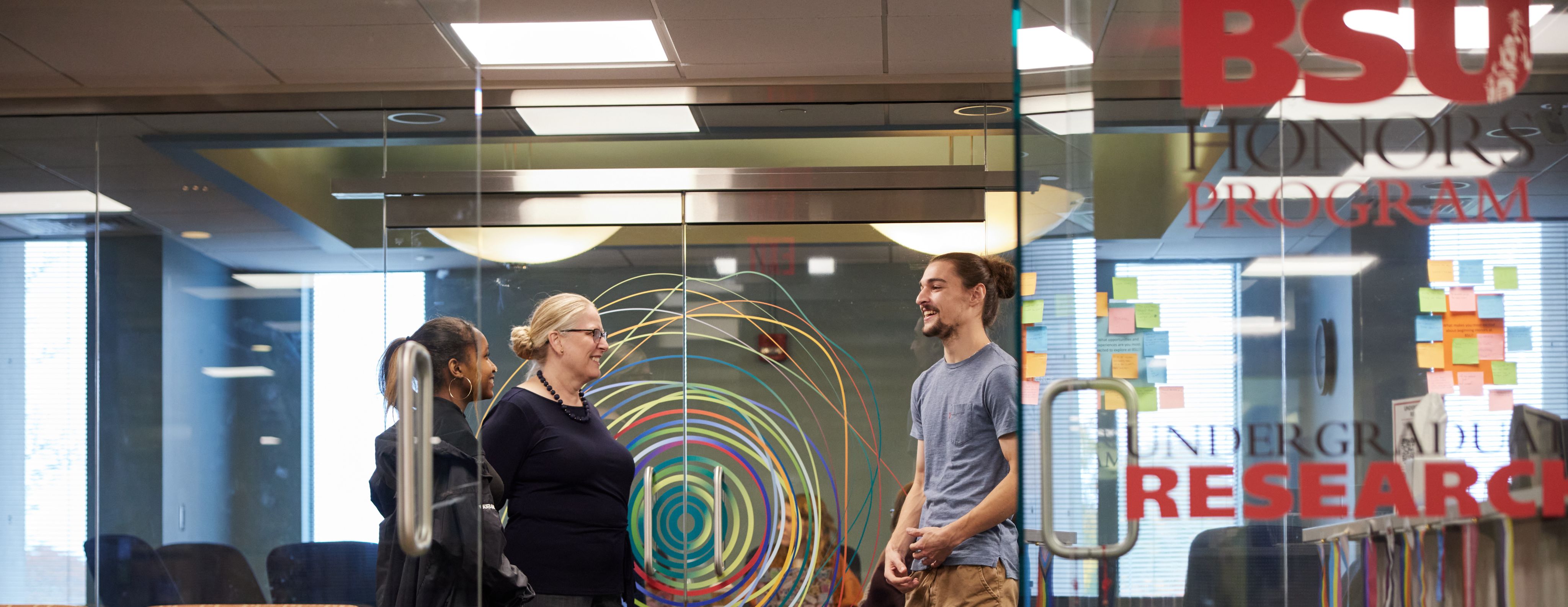

Priority Four
Infuse BSU’s academic programs with new resources to make them more nimble, impactful, and responsive to emerging opportunities.
